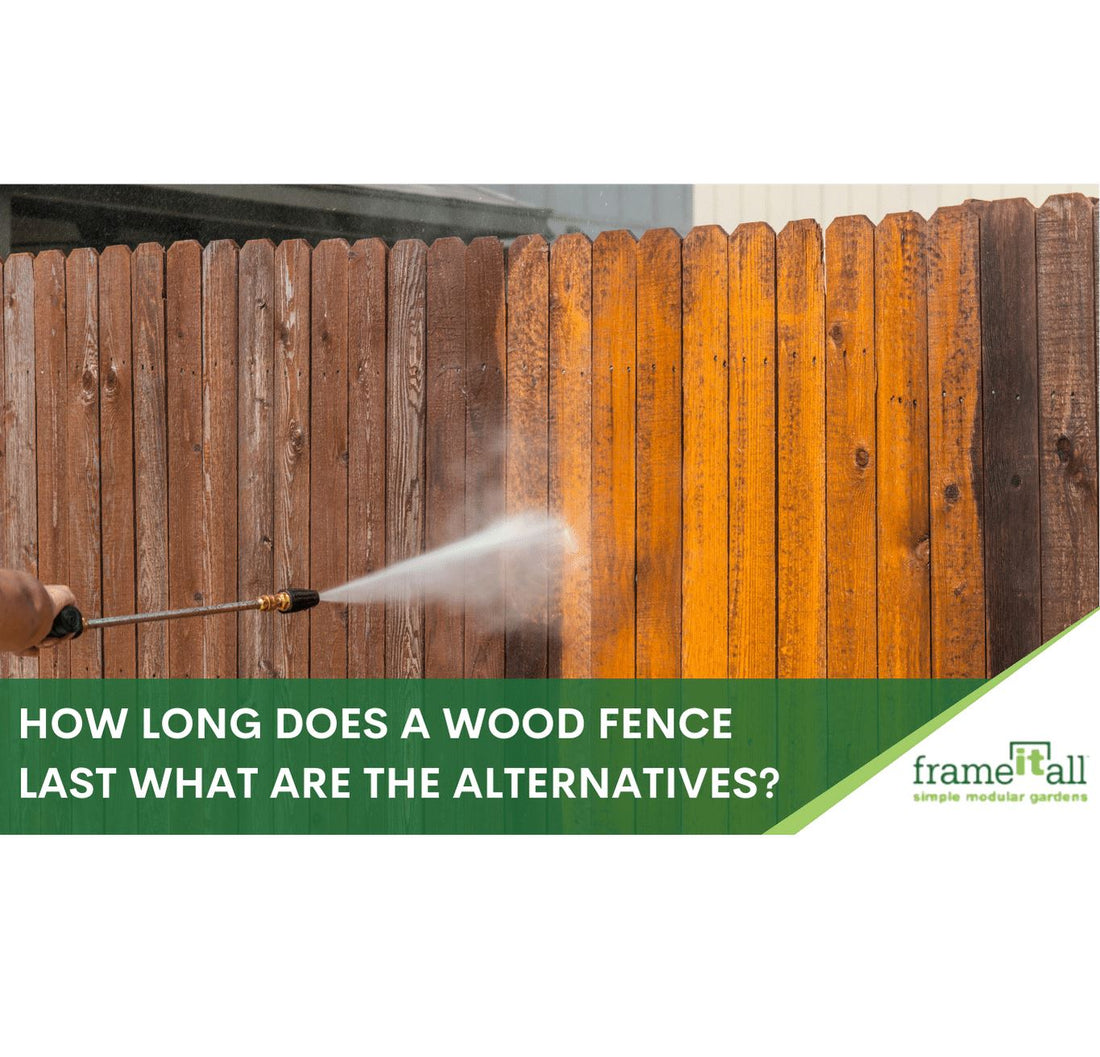When it comes to fencing options for your property, durability is a key factor to consider. A well-constructed fence not only enhances the aesthetic appeal of your home but also provides security and privacy. In this blog post, we'll delve into the longevity of wood fences and explore alternative materials that might better suit your needs.
The Lifespan of a Wood Fence - Does a Wood Fence Last?
Factors Affecting Longevity

The longevity of your fence is crucial to allow you to feel secure in your home. Wood fences are popular for their natural beauty, but their lifespan can vary depending on several factors. Climate, maintenance, and the type of wood used are crucial determinants, there are many options such as cedar and pressure-treated wood. Generally, a well-maintained wood fence should last from 15 to 20 years, with good care and attention every few years.
Maintenance Tips
To extend the life of your wood fence, regular maintenance is essential. This includes sealing or staining the wood to protect it from the elements, addressing any signs of rot or insect damage promptly, and cleaning it to prevent mold and mildew growth.
Alternatives to a Wooden Fence
While wood is a classic choice, there are alternative materials that offer increased durability and require less maintenance, and will not decay over time. Wood offers a great solution but there are some risks, check out some of our latest blogs to find out more:
Vinyl Fencing

Vinyl fencing has gained popularity for its low maintenance and impressive longevity. It doesn't rot, warp, or splinter, and it is resistant to pests. With a lifespan of 15 years or more, vinyl fencing is a durable alternative to traditional wood.
Metal Fencing

Metal fences, such as aluminum or steel, are renowned for their strength and longevity. They are resistant to weathering, pests, and rot, making them an excellent choice for homeowners seeking a long-lasting fencing solution. With proper care, metal fences can last 15 years or more.
Composite Fencing

Composite materials, combining wood fibers and recycled plastics, offer the natural look of wood with enhanced durability. Composite fences are resistant to rot, insects, and harsh weather conditions. They typically last 20 to 25 years, making them a viable alternative to traditional wood.
Making an Informed Decision
Consider Your Priorities
Before choosing a fencing material, consider your priorities. If you value a natural aesthetic and are willing to invest time in maintenance, wood might be suitable. However, if durability and low maintenance are top priorities, an alternative such as composite fencing may be more appealing.
Something you might like: Composite vs Wood Fence: Which is The Better Choice for You?
Budget Considerations
While wood fences may have a lower upfront cost, it's essential to factor in long-term maintenance expenses. Alternative materials with higher upfront costs may prove more cost-effective over their extended lifespan due to reduced maintenance requirements.
Eco-Friendly Considerations
When exploring fencing options, it's essential to consider the environmental impact. Wood is a renewable resource, but the type of wood and the logging practices used can affect sustainability. Alternatively, composite fencing made from recycled materials and metal fencing that can be recycled at the end of its life may align better with eco-conscious values.
Customization and Design Options
Wood fences offer a classic and versatile aesthetic, allowing for various design options, including different types of wood, stains, and styles. However, alternative materials like vinyl and composite also offer a range of customization possibilities. Consider the design flexibility each material provides to ensure your chosen fence complements the overall look of your property.
Wrapping Up
In the pursuit of a long-lasting and aesthetically pleasing fence, understanding the lifespan of wood and exploring alternative materials is crucial. Balancing factors such as maintenance requirements, durability, and customization options will guide you toward the fencing solution that best suits your needs.
Remember, a well-maintained fence not only adds value to your property but also enhances its curb appeal. Whether you opt for the time-tested beauty of wood or choose a modern, durable alternative, investing in a quality fence ensures years of security, privacy, and satisfaction for you and your family.
Check out our durable fence guide if you're keen to learn more

